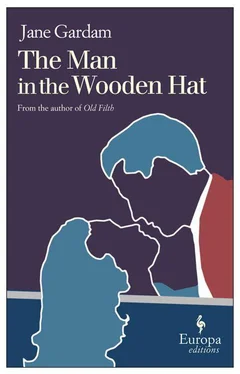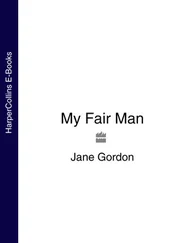Jane Gardam
The Man in the Wooden Hat
“Old, forgotten far-off things
and battles long ago.”
There is a glorious part of England known as the Donheads. The Donheads are a tangle of villages loosely interlinked by winding lanes and identified by the names of saints. There is Donhead St. Mary, Donhead St. Andrew, Donhead St. James and, among yet others, Donhead St. Ague.
This communion of saints sometimes surprises newcomers if they are not religious and do not attach them to the names of village churches. Some do, for the old families here have a strong Roman Catholic tinge. It was Cavalier country. Outsiders, however, call the Donheads “Thomas Hardy country” and it is so described by the estate agents who sell the old cottages of the poor to the rich.
And not entirely truthfully, for Hardy lived rather more to the south-west. The only poet celebrated for visiting a Donhead seems to be Samuel Taylor Coleridge, who came to see a local bookish bigwig but stayed for only one night. Perhaps it was the damp. The Donhead known as Ague seems connected to no saint and is thought to be a localised Bronze Age joke. Even so, it is the most desirable of all the villages, the most beautiful and certainly the most secluded, deep in miles of luxuriant woodland, its lanes thick with flowers. The small farms have all gone and so have the busy village communities. The lanes are too narrow for the modern-day agricultural machinery that thunders through more open country. At weekends the rich come rolling down from London in huge cars full of provisions bought in metropolitan farmers’ markets. These people make few friends in their second homes, unless they have connections to the great houses that still stand silent in their parks, still have a butler and are now owned by usually absent celebrities. There is a lack of any knockabout young.
Which makes the place attractive to the retired professional classes who had the wit to snap up a property years ago. Their children try not to show their anxiety that the agues of years will cause the old things to be taken into care homes and their houses to be pounced upon by the Inland Revenue.
In Donhead St. Ague there is a rough earth slope, too countrified to be called a driveway, to the left of the village hill. Almost at once it divides into separate branches, one left, one right, one down, one up. At the end of the left-hand, down-sloping driveway stands the excellently modernised old farmhouse of Sir Edward Feathers QC (retired), who has lived there in peace for years. His wife Elisabeth — Betty — died while she was planting tulips against an old red wall. The house lies low, turned away from the village, towards the chalk line of the horizon and an ancient circle of trees on a hilltop. The right-hand driveway turns steeply upwards in the other direction to be lost in pine trees. Round the corner, high above it, is a patch of yellow gravel and a house of ox-blood brick; apart from one impediment, it shares the same splendid view as Eddie Feathers’s house below. The impediment is Feathers’s great stone chimney that looks older than the house and has a star among the listed glories of the area. Maybe the house was once a bakery. The people in the ugly house above have to peep round the chimney to see the sunset.
There have been the same old local people in the ox-blood house, however, for years and they are even-tempered. The house has become a sort of dower house for elderly members of a farming family who don’t mix and, anyway, farmers seldom look at a view. They have never complained.
One day, however, they are gone. Vans and cars and “family members” whisk them all away and leave Eddie Feathers to enjoy the view all by himself. He is rather huffed that none of them called to say goodbye, though for over twenty years he has never more than nodded to them in a chance encounter by the road. He wonders who will be his new neighbours. But not much.
The village wonders, too. Someone has seen the hideous house advertised for sale in Country Life at an astounding price, the photograph making it look like a fairy palace, with turrets. And no chimney in sight.
But nobody comes to visit it for some time. Down by the road a London firm of estate agents puts up a smart notice which Edward Feathers fumes about, not only because of the vulgarity of having to advertise a house in the Donheads, especially in St. Ague, but because someone might just possibly think that it referred to his.
Weeks and months passed. The right-hand driveway became overgrown with weeds. Somebody said they had seen something peculiar going on there one early morning. A dwarf standing in the lane. But nothing of any newcomer.
“A dwarf?”
“Well, that’s what the paper boy said. Dropping in Sir Edward’s paper down that bit of drainpipe. Seven in the morning. Mind, he’s not what he was.” (The paper boy was seventy.)
“There are no dwarfs now. They’ve found a way of stopping it.”
“Well, it was a dwarf,” said the post boy. “In a big hat.”
Rather more than half a century earlier when cows still came swinging up the Donhead lanes and chickens sat roosting in the middle of their roads, and there were blacksmiths, and the village shop was the centre of the universe, and most people had not been beyond Shaftesbury unless they’d been in the armed forces in the war, a young English girl was standing in the bedroom of a second-class Hong Kong hotel holding a letter against her face. “Oh,” she was saying. “Yes.”
“Oh, yes,” she told the letter. “Oh, yes, I think so!” Her face was a great smile.
And at about the same moment, though of course it was yesterday for the Orient, an unusual pair was sitting in the glossy new airport for London (now called Heathrow) in England (now being called mysteriously the UK) waiting for a Hong Kong flight. One of the men, pretty near his prime, that’s to say just over thirty, was English and very tall, and wore a slightly dated hand-made suit and shoes bought in Piccadilly (St. James’s Street). He was a man of unconscious distinction and if he’d been wearing a hat you might think you were seeing a ghost. As it was you felt he had been born to an earlier England.
His companion was a Chinese dwarf.
That at any rate was how he was described by the lawyers at the English Bar. The tall man was a barrister; a junior member of the Inner Temple and already spoken of with respect. The dwarf was a solicitor with an international reputation, only notionally Chinese. He preferred to be known as a Hakkar, the ancient red-brown tribe of Oriental Gypsies. He was treated with even greater respect than the barrister — who was, of course, Edward Feathers, soon to be known as “Old Filth” (Filth an acronym for Failed in London Try Hong Kong) — for he held a gold mine of litigation at his disposal all over the world wherever English Law obtained. The dwarf could spot winners.
His name was Albert Loss. It was really Albert Ross, but the R was difficult for him to pronounce in his otherwise flawless English. This annoyed him, “I am Loss” being not encouraging to clients. He claimed to have been at Eton but even to Feathers his origins were hazy. He worked the name Ross as near as possible to the Scottish nobility and hinted at Glamys and deer-stalking in the glens. Sometimes he was jovially called “Albatross,” hence “Coleridge” or “Ancient Mariner,” to which he responded with an inclination of the head. He was impossibly vain. To Eddie Feathers he had been, since the age of sixteen, a wonderful, if stern, friend.
Читать дальше












